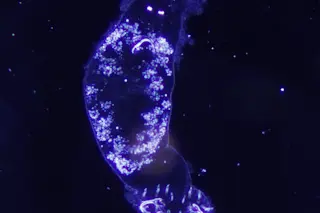Let's talk about soul mates. It's a nice concept, but functionally unworkable. There are just too many people out there for any one person you meet to be "the one." In reality, it's probably more like "one of roughly several million people, some marginally better than others."
And if we take the thought experiment at face value and assume that there were truly just one soul mate for each of us, our odds of finding them end up at around a hundredth of a percent even with some fairly strict limits imposed, as Randall Munroe of xkcd demonstrates.
Statistics may hold little regard for romance, but that doesn't mean we can't try anyway. The collective cultural output of humanity is seriously biased toward stories of romantic perfection, and much of our behavior is aligned accordingly.
Evolutionarily speaking, true love is a terrible idea, but it's a reminder that one of ...














